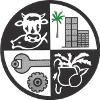Following on from the Governor of the Bank of Papua New Guinea’s recent comments about the need to develop Papua New Guinea’s tourism industry, Melanesian Tourism Services’ Managing Director Sir Peter Barter argues for urgent cooperation between government and industry.
It is rather interesting to read that the Governor of the Bank of Papua New Guinea has focused attention on the potential of tourism in PNG. Many—including myself—have tried our best, but we have continued to fail.
The Government, along with state-owned entities, cannot seem to coordinate themselves to really overcome the difficulties faced in attempting to develop tourism as a meaningful industry for the benefit of Papua New Guineans.
Some recent examples can be seen with the restrictions placed on tourist visas for Australians, who now must obtain ‘free’ visas before entering PNG. Yet, if an Australian travels to Rabaul, Alotau or maybe Mt Hagen, free tourist visas will be issued on arrival, which in itself is discriminatory. By contrast, if Australians travel on a cruise ship, or travel to PNG to board a cruise ship, they are not required to obtain a tourist visa prior to arrival!
Maritime tourism
Papua New Guinea’s 2013/2014 visitor arrivals statistics show an increase of 11.5% increase in tourist arrivals yet, when you delve into how these figures are obtained, you find that the increase is due to increased arrivals by cruise ships (as there is no category for cruise ships and they are bundled into the ‘holiday’ arrivals). If you deduct the cruise ship arrivals, it shows a massive decrease in visitor (tourism) arrivals.
In regard to maritime tourism, the National Maritime Safety Authority (NMSA) increased its fees by over 500%. To give an example, a 70-passenger ship was indirectly paying K430 per person to cover the NMSA charges (this does not include other charges by other state-owned entities). Fortunately, with pressure from ship owners and MTS, they are now reviewing the charges. In the meantime, some ship operators have decided not to revisit PNG in the future.
Promoting the industry
In regard to promoting tourism, the PNG Tourism Promotion Authority and their agency in USA had Huli people being phographed strolling the streets of New York and, of course, attracted a lot of attention including the media which was obviously their intention. I guess such a promotion has merit, but I cannot help being reminded of when the late Sir John Guise stated that he did not want his people being made ‘objects of curiosity.’ The culture of PNG is a great drawing card but, taken out of the PNG environment, does this place them in the category described by Sir John?
Most of the major tour operators selling PNG 20 years ago no longer have a real interest in promoting PNG: they go for easier, less risky destinations and these are in abundance as tourism is a very competitive business. Having said this and, in defence of Air Niugini, in recent years services have improved but we still lack interconnecting flights between provinces, which forces travellers to use Port Moresby as a hub, which can deter visitors from making multi-destinational visits within PNG.
I used to pass off that crime in PNG was a perception but today it is not a perception: it is real and needs to be addressed. We cannot begin to really promote PNG until the Government improves the current law and order situation throughout PNG.
Comparisons with Fiji
Mr Bakani should be taken very seriously. I am very much aware of the tourist industry in PNG, with my family having contact for over 100 years. The Fijians rely on tourism as a major industry, their industry works closely with the Fiji Visitors Bureau to meet challenges when they arise, including military coups and the adverse press given to Fiji as a tourist destination.
They rely heavily on Australia as a major market and quickly go into damage control when incidents occur and work closely with the Fiji government to restore the flow of tourists, as they recognise the importance of the tourist industry to their economic future, employment, business opportinities and not least their investment potential, which goes hand in hand with the image created for enticing tourists.
Still enthusiastic
I remain enthusiastic about PNG’s tourism development, despite the challenges.
I am again recommending three stages of meetings: the first with heads of government and industry, the second of industry leaders to recommend a plan to Government and, finally, a forum to announce the recommendations to the public.
All this should take place within three months. We cannot continue to talk—an action plan needs to be put in place now and it needs to be done by ourselves, not by experts or consultants from outside.
Sir Peter Barter is Managing Director of Melanesian Tourism Services in Madang and a former Minister for Health and Bougainville Affairs in the PNG Government.

